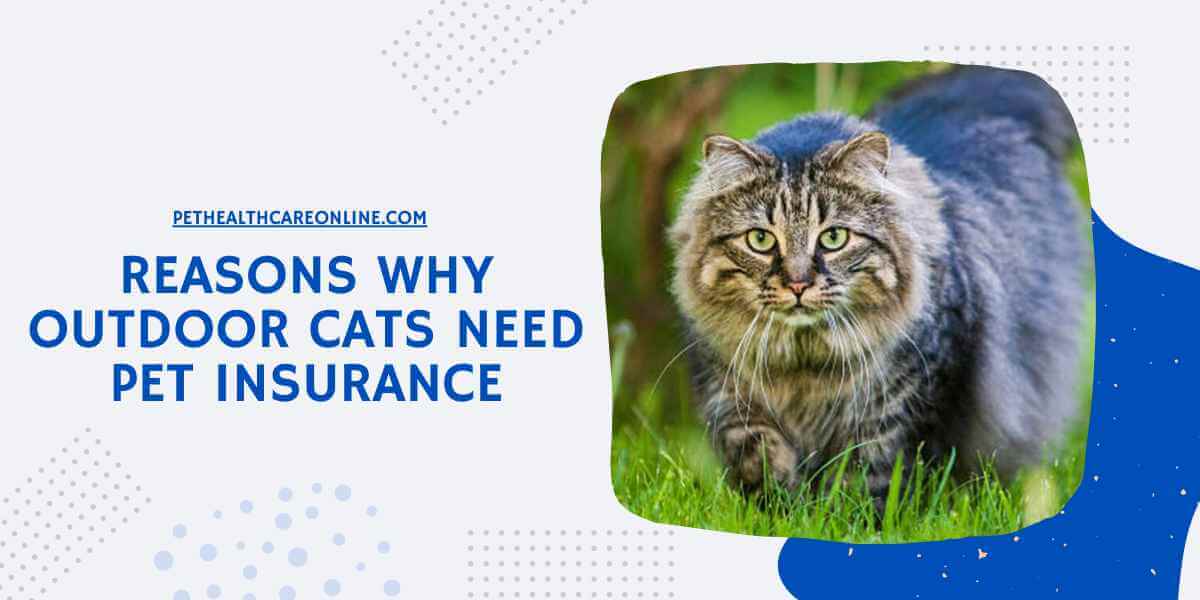As most cat lovers know, sometimes our feline companions may prefer the great outdoors as opposed to living in an enclosed space. Outdoor cats have the liberty to live a bit wilder, free to explore their surroundings and interact with nature by instinct – but this freedom doesn’t come without its setbacks.
Compared to cats kept strictly indoors, outdoor cats sadly face many dangers that may cause the already expensive vet bills to skyrocket. So if your tabby or tortie, or any kind of cat for that matter, enjoys nature and wants to spend time outside – you should be ready to take some precautions.
5 Reasons Why Do Outdoor Cats Need Pet Insurance
The primary way you can help your cat and your wallet during vet visits; is to invest in pet insurance. You can choose an insurance plan that will fit your exact needs and breathe a sigh of relief, knowing that you’ll be able to cover the cost in case your outdoor kitty ever runs into any dangers. And as for what exactly those dangers may be, here are some of the most common risks outdoor cats face.
1. Higher Risk of Injury
Cats are generally very agile creatures and rarely get hurt, but there are many ways a cat can get physically injured while living outdoors. These injuries may potentially be far worse than the minor and rare injuries an indoor cat might face. For starters, even if you take measures and keep your cat in a fenced area if it manages to break out and reach the street – it will face the great danger of being injured by a vehicle.
Outdoor cats also get injured often in fights. Whether the cat runs into another feline of the “not-so-friendly” caliber or a hostile dog – the risks are not only limited to physical injuries but general health ones too.
2. Dealing With Infections
Aside from leading to injuries, the aforementioned fights with other animals carry the risk of our feline friends getting an infection that will require veterinary intervention.
One of the most dangerous viruses cats might encounter through interactions with strays is the Feline Immunodeficiency Virus, or FIV for short (a virus similar to HIV in humans). There are also other infections spread by stray animals, such as rabies and the Feline Leukemia virus.
Another way outdoorsy felines can get infected is by coming into contact with parasitic critters such as fleas, mites, and ticks. They can also encounter parasites that might attack their internal organs by drinking contaminated water or consuming contaminated food. Such parasitic infections require medical attention, the expenses of which may be fully or partially covered by your insurance depending on the plan you’ve opted for.
3. Risks Brought on by Hazardous Climate Conditions
Even though we all know cats love spending time lounging around under the warm sun, they are not immune to the risks of heatstroke during extremely hot summer days. Incidents such as these may cause additional health issues and frequent vet visits.
On the other hand, harsh winters carry a slew of dangers too. During the cold months, your cat may be more predisposed to health problems such as the common cold. However, if the conditions are more extreme, issues as bad as frostbite and hypothermia may ensue. If this happens, the cat will need to be taken to a veterinary office immediately.
4. Cost of Veterinary Bills
It is safe to say that a cat kept outside might require more frequent and costlier veterinary care compared to felines who prefer the indoors.
The vet bills for some of the more significant issues like serious injuries or dangerous infections may put an enormous dent in your budget if you haven’t invested in pet insurance beforehand. With pet insurance, however, your outdoor cat will be able to get the treatment it needs if it gets into trouble without you having to worry about high costs.
5. Routine Care Coverage
In most cases, pet insurance companies employ another type of plan that covers the routine care your cat requires to stay healthy and in optimal shape. Often you will find these types of insurance plans listed as “Pet Wellness Plans”.
Choosing insurance that offers this means that not only will the costs of emergency vet visits be covered, but you will also be financially compensated during regular checkups. These plans often include yearly vaccinations needed to keep your feline friend safe from any infections it might get outdoors.
Bottom Line
Investing in pet insurance is the best thing one can do to keep their outdoor cat safe. This way, you won’t have to worry about whether you can afford necessary checkups and unavoidable emergency vet visits. As a bonus, if your insurance has a wellness add-on – your cat can be immunized and dewormed regularly, which means it will have some extra protection against the potential dangers of living outside.



